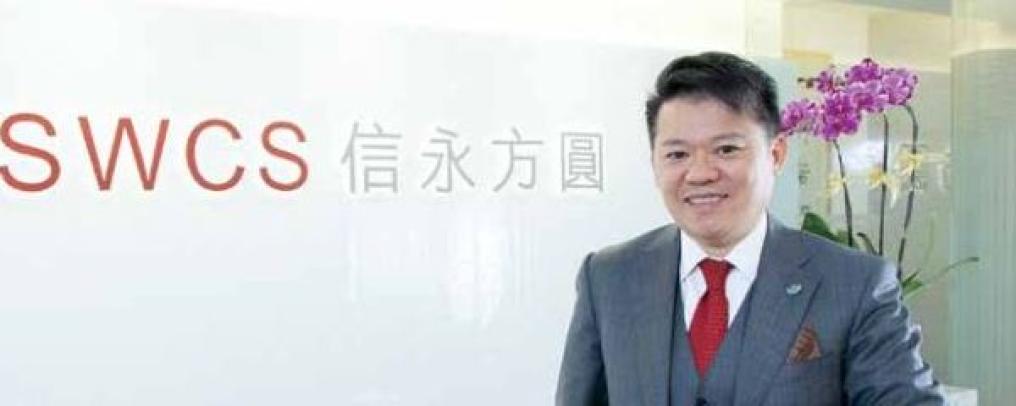Hong Kong's new Competition Ordinance, scheduled to be implemented later this year, will have significant compliance implications for companies in Hong Kong. CSj takes advice on the best way for compliance professionals to prepare for the new law.
In most developed jurisdictions, competition compliance is already a well-established part of companies' compliance programmes. This topic will be a regular item on boards' agendas and directors will usually be aware of the risks of non-compliance with antitrust legislation. Indeed these risks have been highlighted by the size of the payouts companies have been paying for breaches of antitrust legislation globally.
In mid-December 2014, for example, corporate giants L’Oreal and Unilever – along with nine other companies – were fined US$1.2 billion over allegations of price rigging. The fine was the largest ever delivered by France's antitrust arm. In the same month, the Competition Commission of Singapore (CCS) handed out US$5.4 million in fines to 10 freight forwarders for fixing fees and surcharges on Japan– Singapore routes between 2002 and 2007.
Toh Han Li, CCS Chief Executive, was direct in his indictment of the activities: 'Price fixing among competitors, thus forming a cartel, is considered one of the most harmful types of anti-competitive conduct. As an open economy, Singapore businesses are vulnerable to such international cartels,' he said.
Currently in the US, Apple is appealing a federal judgment that it collaborated in a horizontal price-fixing scheme to raise the price of e-books prior to Apple's launch of the iPad. In Mainland China, regulators confirmed market monopolies on several leading auto brands and, in late 2014, delivered fines for price fixing, interfering with downstream operators' pricing, and restricting competition in the car and auto-part markets.
Hong Kong's new Competition Ordinance
In Hong Kong this area of regulatory compliance has not been a major concern for local companies outside of the telecom and broadcasting sectors in the absence of a cross-sector competition law – but that is about to change. In June 2012, Hong Kong's first comprehensive competition law – the Competition Ordinance (Cap 619) – was enacted. Initially, only those provisions setting up the authority tasked with enforcing the law (the Competition Commission) and the tribunal with primary jurisdiction to hear and adjudicate competition-related cases (the Competition Tribunal), have been implemented. However, full implementation of the law, bringing into force its anti-competitive rules, is scheduled for later this year. Respondents to this article emphasise that action is urgently needed to prepare for the full implementation of the Competition Ordinance. The law will prohibit conduct that prevents, restricts or distorts competition in Hong Kong and mergers that substantially lessen competition in Hong Kong. It will prohibit:- anti-competitive agreements under the first conduct rule (including anti-competitive agreements that originated outside Hong Kong but have economic effects in the Hong Kong market), and
- abuse of substantial market power under the second conduct rule (also including conduct originating outside Hong Kong that constitutes an abuse of substantial market power in the Hong Kong market).
Further, criminal sanctions are available to the courts, though they are limited to situations where an undertaking (which includes both businesses and individuals) has not complied with an investigation, or has obstructed an investigation through evidence tampering. Failure to comply with a Competition Commission investigation may result in a fine of HK$200,000 or imprisonment for one year, for an indictable offence. More serious obstruction, such as the destruction or falsification of evidence, providing misleading evidence, or the obstruction of a dawn raid, may result in a fine of HK$1 million or imprisonment for two years, for an indictable offence.
What does this mean for Hong Kong businesses?
At first glance, the Competition Ordinance's conduct rules may appear fairly straightforward, but understanding their implications for business operations is not always so obvious. For example, David Samy, a Partner in Advisory Services with Ernst & Young, points out that global companies need to recognise that the law will apply to them even if their presence on the ground in Hong Kong is minimal. 'They may not have large factories or distribution centres here, but they might have a marketing presence or sales company in Hong Kong. In the eyes of the law they will still be seen as significant multinationals. They will therefore be seen as influential by the government and will be in a position to trigger the Ordinance if they are not fully in step with its provisions,' Samy says.
He adds that compliance professionals, including company secretaries, will be well advised to seek legal help in interpreting the new competition law. 'As this Ordinance is more technical than others, a company secretary may need support from a legal adviser. Bear in mind that this does not just affect the company; it affects the counterparties with whom it is engaged.'
1. The first conduct rule
Initially, the enforcement focus of the Competition Commission is expected to be on serious cartel activity amongst competitors. These 'horizontal agreements', prohibited by the first conduct rule, include:- price-fixing – agreeing on customer prices or price-elements such as discounts or price ranges
- market-sharing – allocating segments of the market amongst competitors
- bid-rigging – subverting tender processes by agreeing with competitors what bids will be made, and
- output restriction – agreeing with competitors to limit production or sales output to drive up prices or otherwise maximise market positions.
In Hong Kong, the prohibition of any agreements or practices having as their object or effect the restriction of competition under the first conduct rule has led to concern that participation in trade associations may be problematic. Can Trade Associations make recommendations relating to prices and fees? Another concern is the discussion and information exchange among competitors in informal meetings or social events.
2. The second conduct rule
The second conduct rule prohibits undertakings with substantial market power from abusing that power by engaging in conduct that has the object or effect of preventing competition in Hong Kong. The Competition Commission has indicated that the second conduct rule will only apply to a single entity with substantial market power, but not collective dominance. The Competition Ordinance provides that an undertaking's market power may be measured through its market share, its decision-making power relating to pricing and other decisions, and barriers to entry in a market. The Competition Ordinance does not thoroughly list the conduct that would constitute abusive behaviour, but it provides a partial list including: predatory behaviour and limiting production, markets or technical development to the prejudice of consumers.3. Exclusions to the conduct rules
The intention of the Competition Ordinance is not to make life harder for Hong Kong SMEs. Agreements between smaller companies (those with a turnover of less than HK$200 million) that do not represent serious anti-competitive conduct, are therefore excluded from the first conduct rule.
The Competition Ordinance also includes various other exclusions and exemptions. For example, immunity from the conduct rules can be granted to an agreement or conduct that enhances economic efficiency, is performed by an undertaking entrusted with the operation of services of general economic interest, or is made in compliance with a legal requirement.
Businesses with a turnover of less than HK$40 million, may be excluded from the provisions of the second conduct rule entirely. Finally, conduct that is necessary for compliance with legal requirements under Hong Kong law, and the performance of services of 'general economic interest’, are not included.
An action plan for compliance professionals
1. Know and understand the law
Mark Williams, Executive Director, Asian Competition Forum, and Professor of Law, University of Melbourne Law School, says that company secretaries, 'should ensure that they understand the nature of the first and second conduct rules and how they might apply to their particular business. If they do not understand them, they should seek advice from properly qualified lawyers or consultants.' David Samy of Ernst & Young agrees that the first step towards successful compliance is for companies to understand the law in detail and to understand its implications for their operations. He points out that the Competition Commission has already provided substantial guidance on the new law.
In May 2014, the Competition Commission published guidelines (Getting Prepared for the Full Implementation of the Competition Ordinance) highlighting the key provisions of the Competition Ordinance. The key point the Commission wants the market to understand is that established practices that have been widely accepted as normal business practices in Hong Kong may be considered anti-competitive conduct under the law. As a result, Hong Kong companies need to make certain that their practices do not fall foul of the Competition Ordinance.
Mr Samy believes that company secretaries and the boards of larger businesses are already taking steps in the right direction. 'I think the level of urgency might not be there yet,' he says, 'but some company secretaries are quite advanced in their preparations and I see many company secretaries (and boards) who are way ahead. They are already engaging with legal counsel, for example, as there are technical requirements in the ordinance that need to be understood.'
2. Get competition compliance onto your board's agenda
Once compliance professionals have the necessary understanding of the law, they should bring this to the attention of the board with recommendations for action to be taken to ensure compliance. 'Company secretaries need to get the Competition Ordinance onto the agenda of boards and start the education process. This will enable the board to trigger initial action and decide if their business practices will need to change or not,' says Samy.3. Undertake a compliance audit
A compliance audit is the best way for companies to assess the implications of the new competition law for their operations. 'A lot of this is really about business practices,' says Samy. 'Things might have to change. I have clients who speak of how they operate with their counterparties (such as their distributors) and the contracts that they set up with them will have to change because of the Competition Ordinance. I think there has been quite a bit of preparatory activity already. People are aware of what is happening, but there is still quite a lot of work that has to be done,' he says.
It is also critical that boards set a timetable, ask tough questions and hold senior management accountable for the results. A higher degree of scrutiny will reduce the risk of Competition Ordinance compliance activities being delegated too far down the chain of command to be effective.
4. Set up a compliance training programme
The next step in your compliance programme should be to set up a training programme for relevant staff. 'This will provide evidence that the company is in earnest with regard to compliance and educate staff that some previously adopted business behaviour is no longer acceptable or lawful,' says Mark Williams. 'On completion of the audit, action should be taken to ensure that relevant employees and operational staff are aware of the conducts that could be in breach of the first and second conduct rules, that the company policy is that they should not to engage in such conduct on pain of disciplinary action, given the reputational and/or pecuniary harm the company could suffer if enforcement action is successfully pursued against them by the Competition Commission or by suppliers, customers or competitors in subsequent actions for damages.'5. Maintain ongoing monitoring
Compliance with Hong Kong's new Competition Ordinance will not be a one-off assignment for compliance professionals. Rose Webb of the Competition Commission points out that companies will need to ensure that they monitor their compliance with the new law on an ongoing basis. This will require carefully monitoring high-risk areas such as their dealings with competitors, suppliers and customers. 'Systems that review formal and informal links with those entities, such as checking whether you are imposing potentially anti-competitive requirements in distribution contracts, or checking what information is being shared with competitors, would make sense,' she says.Why the urgency?
There is, as yet, no fixed date for the implementation of the new Competition Ordinance's conduct rules, but the law is expected to go live later this year. Compliance and antitrust professionals, however, have been warning that, to ensure compliance, action needs to be taken well in advance of the law's implementation.
In a recent update, Deacons Hong Kong urged companies to take immediate action to review the established business arrangements and seek legal advice on those practices that could be caught by the law.
'Every company should be aware of the leniency policy provided in the Ordinance so that any possible breach of the Ordinance is promptly reported to management before making an application to the Commission. One should bear in mind that the first applicant to the Commission will receive full immunity in terms of the financial penalty and other punitive orders. In any event, the best way to avoid a breach of the Ordinance is to have an effective compliance system in place,' the update explained.
'Companies with extensive business interests in Hong Kong would be well advised to commence their preparations for the Competition Ordinance now, including reviewing contracts and conduct for infringements that may fall into the "serious" category under the first conduct rule,' warns the Asia-Pacific Antitrust Review 2013.
David Samy points out that changing well-established business practices is not something that can be achieved overnight. 'This is about understanding the Ordinance, and looking at business practices and asking "do we need to change these practices and, if we do, how do we monitor change?" Many industries may see quite a few changes,' he says.
Gina Miller, Journalist. The guidelines issued by the Competition Commission on the new competition law are available on the Commission's website: www.compcomm.hk.
SIDEBAR: Compliance tips from the Competition Commission
Rose Webb, Senior Executive Director, Competition Commission, recommends the following steps to prepare for the implementation of the Competition Ordinance.
- Inform yourself about the Competition Ordinance.
- Educate your employees on core principles – consider a compliance programme/ compliance audit.
- If you are concerned about arrangements that you currently have in place, consider whether you should change them to ensure compliance – seek external legal advice if necessary.
- Encourage your trade association to adopt a culture of compliance and to keep members informed about the Competition Ordinance.
- Keep an eye on the Competition Commission's website for more information and risk assessment tools.



